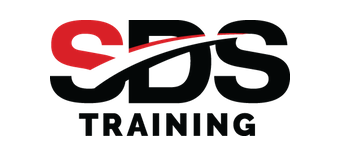So you’ve landed an interview for a job you really want. There’s only one problem – You’re terrible in interviews.
Between sweaty palms, fumbling over your words and endless awkward forced laughter (admit it, you know exactly the laugh I’m referring to), you can barely remember your own name let alone impress the interviewer with your breadth of knowledge on the position and company.
But never fear! We’ve devised 5 simple steps you can implement that will have you oozing confidence at your next interview!
Tip 1: Dress For Success

WHAT YOU SHOULD DO:
You can already get one step ahead of other applicants by being the best dressed upon your arrival. Take time the night before or the morning of your interview to prep yourself to ensure you’re looking your sharpest.
Think well-groomed facial hair, freshly washed hair and selecting a make up look that probably doesn’t resemble Mimi from the Drew Carey Show (save it for your Friday night festivities).
Plan your attire in the days prior to your interview and be sure to get the opinion of family and friends to ensure it’s both appropriate (tip: dress for the job you want, not the job you have) and flattering to propel your way to success.
Tip 2: If You Fail To Prepare, You Best Prepare To Fail

WHAT YOU SHOULD DO:
Though a little corny, preparation really is key to any triumphant job interview. Research as much as you can about the company prior to your interview to learn their products/services, stance on corporate culture and their vision for the future. Having this information on hand can help you to answer any specific questions relating to the role and more importantly, shows you’ve got initiative and enthusiasm to bring to the position.
Whilst on the topic of initiative, take the time to prepare answers to a few common interview questions. This can help put your mind at ease going into the interview and make you appear more cool and collected to your potential employers.
It’s also important you take the time to formulate a series of questions for your interviewer as it’s likely they’ll ask towards the conclusion of the interview. Try to stray away from simple questions and definitely avoid saying “no, not really” as this will reflect poorly on your level of care and commitment to the role. Try questions such as “What comprises your ideal candidate?” or “Noting the key characteristics you have outlined for the ideal candidate, what reservations do you have regarding my experience and/or knowledge with reference to fulfilling the duties of this position?” Both of these questions not only allow you to gauge a deeper understanding of the exact expectations of the role but give you an opportunity to dispel any concerns the interviewer may hold surrounding your level of knowledge and/or experience.
Tip 3: First Impressions Matter (Big Time)
![]()
WHAT YOU SHOULD DO:
Did you know that most employers have made up their mind about your suitability for the position within the first 5 minutes of your interview?
It’s true – And it’s your job to make sure you make the first impression a good one! (Trust me, it’s far easier than spending the rest of your interview attempting to reverse their decision).
From the moment you arrive, greet everyone you meet with the utmost respect (tip: this is a great motto for life in general but with context to an interview environment, you never know who you’re meeting and what impact they could have to your success). Be sure to give a firm handshake, make eye contact and exude a positive attitude that reflects the positive impact you could have on the culture should you be successful.
Tip 4: Fake It ‘Til You Make It

WHAT YOU SHOULD DO:
Self doubt is a padlock to your dreams and confidence is the key to unlocking them. Even if you’re highly qualified and the most suitable candidate for the role, employers may not have the opportunity to see your potential if you’re not prepared to showcase it.
I get it, it’s totally nerve wracking and out of your comfort zone to talk yourself up and put yourself out there only to be faced with the possibility of being cut down or rejected.
Try listing five reasons you believe you’ve got what it takes to kick-butt in this position and practice reciting them out loud until you believe them. The more confident you come across when selling yourself, the more likely your prospective employer is to buy into what you’re selling and present you with an offer at the end of proceedings.
Tip 5: Don’t Stop ‘Til You Get Enough (Or Hired, Preferably)

WHAT YOU SHOULD DO:
So you’ve just aced your interview – You were well dressed, well prepared and well mannered. To top it off you were as cool as a cucumber. Next stop? The dreaded wait.
The torturous time spent anticipating a phone call to inform you of your fate, critiquing each second of your interview and wishing for a do-over to say all the thing you did or didn’t say.
Try not to sweat it! Regardless of the outcome, you can’t change the past but you can learn from it. Use this time to reflect on what you believe went well as well as a few things you could improve upon to make a plan for future interviews.
Depending on the nature of the application process and role, this may also prove an opportune time to again demonstrate your initiative by contacting your prospective employer by email or phone and express your gratitude for the opportunity to be considered and thank them for their valuable time. In some instances, employers have interviewed many potential candidates and often experience fatigue and memory lapses when reviewing their options.
Reaching out not only reinforces your interest in the role but places you top of mind, which may prove the difference if it comes down to you and one or two other candidates.
Think you’d fit the team at SDS Training? Why not throw your hat in the ring and apply here.










